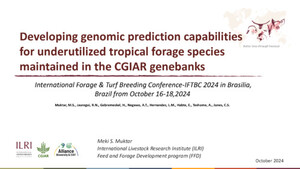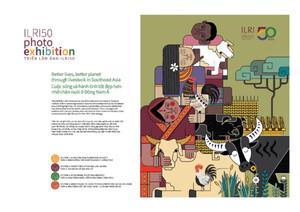
Mitigating health risks in sustainable agricultural intensification
Abstract
Human health is a fundamental feature of sustainable agricultural intensification. Agricultural intensification that increases the burden of human disease, however environmentally benign, is not sustainable. Conversely, sustainable agricultural methods provide specific opportunities for improving human health. The intensification of food systems in low- and middle income countries (LMIC), as they transition from subsistence to market-oriented production, is typically associated with human health risks. Some health risks are associated with the initial stages of intensification, for example, concentration of livestock production and animal waste in peri-urban areas. Inputs associated with this intensification, including fertilizers, pesticides, and antibiotics, can have negative effects on farmers’ health, clean water, and resistance in pathogens and vectors. In rapidly intensifying agricultural systems, regulatory processes that limit the use of harmful products and their residues in water and food may not be in place. Therefore, LMIC face a particular challenge to “de-risk” agricultural intensification, through technical and policy-related interventions that reduce health risks in transitioning agricultural systems.
Citation
Lines, J., Bett, B., Fèvre, E., Moodley, A. and Waage, J. 2020. Mitigating health risks in sustainable agricultural intensification. A4NH Strategic Brief. Washington, D.C.: IFPRI.









